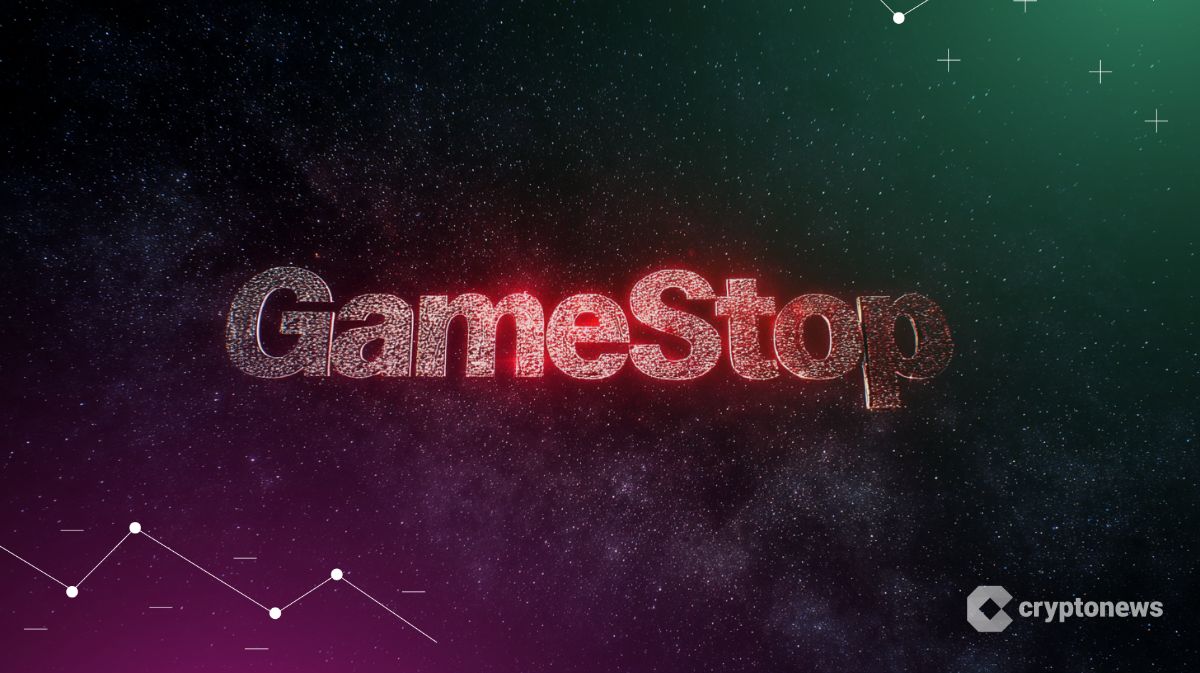Canadian Publicly-Owned Red Light Holland Announces Bitcoin Balance Sheet Strategy
2025/07/15 20:17
PANews reported on July 15 that according to an official announcement, Canadian listed company Red Light Holland announced the implementation of a Bitcoin balance sheet strategy and appointed Scott Melker as chief cryptocurrency advisor.
Disclaimer: The articles reposted on this site are sourced from public platforms and are provided for informational purposes only. They do not necessarily reflect the views of MEXC. All rights remain with the original authors. If you believe any content infringes on third-party rights, please contact service@mexc.com for removal. MEXC makes no guarantees regarding the accuracy, completeness, or timeliness of the content and is not responsible for any actions taken based on the information provided. The content does not constitute financial, legal, or other professional advice, nor should it be considered a recommendation or endorsement by MEXC.
You May Also Like

A giant whale sold $3.52 million of FARTCOIN in exchange for nearly 600 million PUMP
PANews reported on July 15 that according to Onchain Lens monitoring, a whale recently sold 2.75 million FARTCOINs, worth about $3.52 million, to purchase 59.857 million PUMP tokens. Currently, the
Share
PANews2025/07/15 15:26

GameStop CEO Says Bitcoin Bet Is a Hedge, Not a Strategy Copy
Key Takeaways: Ryan Cohen said GameStop is prioritizing cautious capital allocation over aggressive crypto exposure. The company’s convertible note offerings remain a popular funding route even amid equity market volatility. Digital assets continue to enter treasury management discussions, but adoption strategies are uneven. GameStop CEO Ryan Cohen said on Tuesday that the company’s recent Bitcoin purchase was meant as a hedge against macroeconomic uncertainty. According to his comments made during a July 15 appearance on CNBC, the company is not making an attempt to follow other corporate treasury approaches like Strategy (previously known as MicroStrategy). Bitcoin as a Hedge Against Inflation “I look at it as a hedge against inflation and global money printing, and we’ll see what happens,” Cohen said. GameStop acquired 4,710 bitcoins in late May, valued at over $500 million. The purchase followed a series of corporate moves by firms like Strategy, which accumulated billions of dollars in Bitcoin in recent years. Cohen clarified that GameStop’s move was unrelated. GameStop has purchased 4,710 Bitcoin. pic.twitter.com/gGdr0BRrAv — GameStop (@gamestop) May 28, 2025 “We have our own unique strategy, and we have a very strong balance sheet, over $9 billion of cash and marketable securities,” he said. Cohen said the company would maintain a disciplined approach in deploying capital. “We will deploy that capital responsibly as I would my own capital, and only look for opportunities where the downside is limited and there’s a lot of upside,” he said. “We’ll be opportunistic when we see those opportunities.” GameStop’s crypto position is part of Cohen’s effort to stabilize operations. The company has shifted its business mix, focusing more on trading cards and collectibles. New Outlook for GameStop The CEO added that GameStop has moved away from its earlier dependence on hardware and software. He said the retailer has now made a “significant” shift toward those newer segments. “We will deploy that capital responsibly as I would my own capital, and only look for opportunities where the downside is limited and there’s a lot of upside,” Cohen said. “We’ll be opportunistic when we see those opportunities.” The company recently raised $2.25 billion through an upsized convertible note offering. The zero-coupon notes carry a conversion price of approximately $28.91 per share, reflecting a 32.5% premium over the stock’s average trading price at the time of announcement. The offering follows a similar $1.5 billion raise in April and comes amid ongoing volatility in the company’s stock, which fell 24% in the past week. Some public companies are exploring Bitcoin as a reserve asset, but with different levels of exposure. Strategy has taken an aggressive approach, while others, including Tesla and Block, have kept their holdings limited. Frequently Asked Questions (FAQs) Are there accounting standards specific to corporate Bitcoin holdings? Yes. Under current U.S. GAAP, Bitcoin is treated as an intangible asset, meaning it must be written down for impairments but cannot be marked up if its value increases. This has raised concerns about transparency and financial reporting accuracy. How do zero-coupon convertible notes affect existing shareholders? Convertible notes issued at a premium typically delay dilution but still create the possibility of future share issuance. If converted, the new shares can dilute existing ownership depending on the stock price performance at maturity. What regulatory developments could impact corporate BTC adoption? The SEC and FASB have both initiated reviews related to digital asset disclosure, particularly after the rise of spot Bitcoin ETFs. Future rules may clarify how corporations report holdings or manage risk, potentially influencing more widespread adoption.
Share
CryptoNews2025/07/16 03:26

TRX holds strong despite downward flip for top altcoins
TRON price slipped on Tuesday as the cryptocurrency market hit the rocks amid a sudden dip for Bitcoin, but bulls remained largely in control as the altcoin hovered between $0.2955 and $0.3029. As the sell-off pressure for Bitcoin (BTC) hit…
Share
Crypto.news2025/07/16 01:34